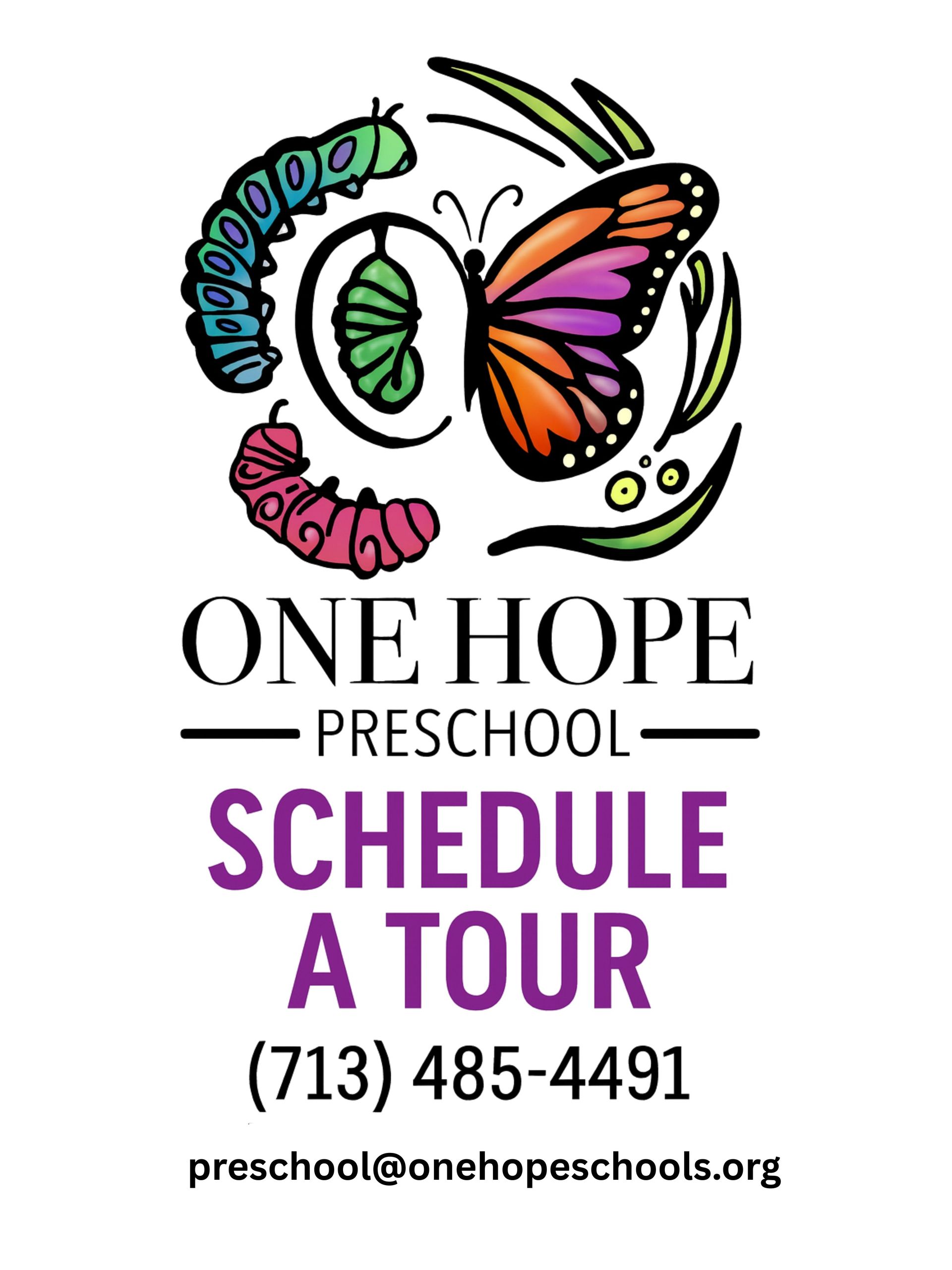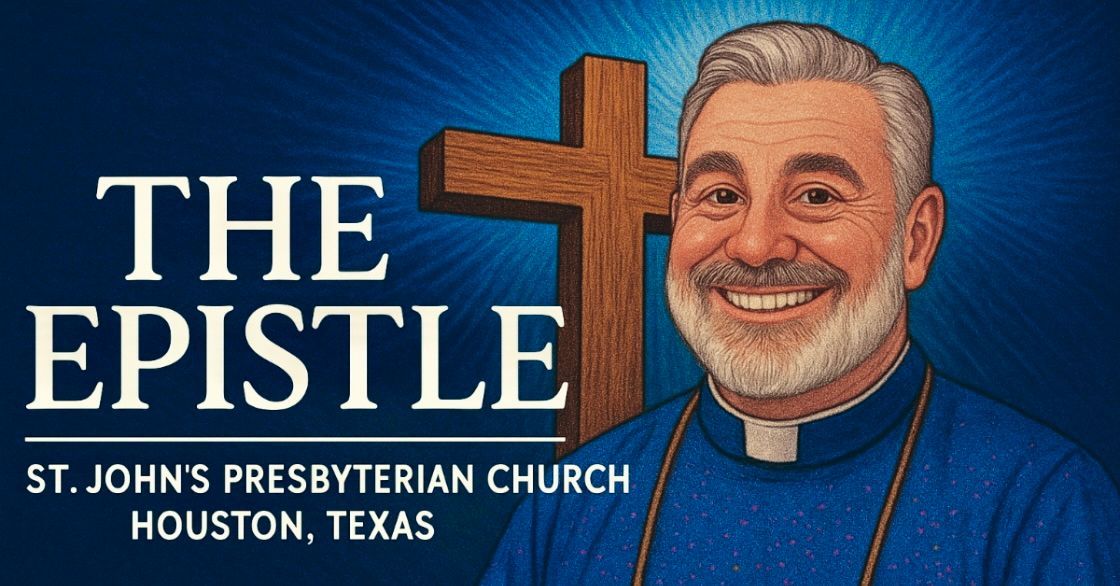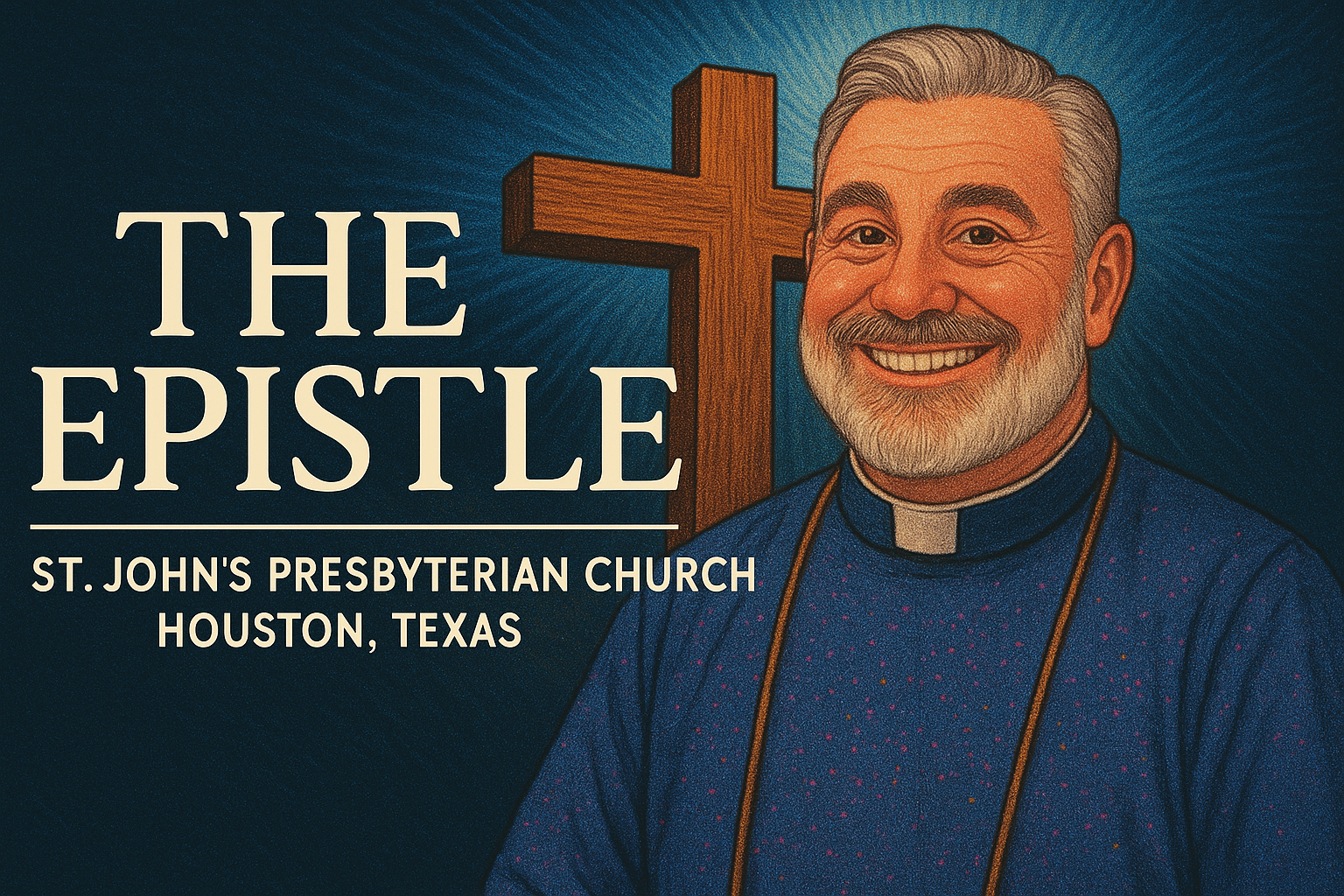Partnership in Ministry: How St. John's and One Hope Preschool Serve Westbury Together
When you drive past St. John's Presbyterian Church during the week, you'll see something beautiful happening. Young families arrive with toddlers and infants. Preschoolers run across the playground. Parents chat together before heading off to work. The building that sits mostly quiet on weekdays has become a hub of life and laughter.
This is what partnership looks like at St. John's.
One Hope Preschool meets on our campus, serving children from infancy through Pre-K. They occupy our space during weekday hours when our church building would otherwise sit empty. What started as a practical arrangement has become something much deeper: a genuine partnership that strengthens both our ministries while serving the Westbury community in ways neither of us could accomplish alone.
Let me tell you why this matters and how it works.
What One Hope Brings to Our Campus
One Hope Preschool isn't just renting space from us. They're bringing their mission to our mission field.
Their approach to early childhood education aligns beautifully with values we care about. They believe childhood is a time to explore, imagine, and grow. Children are encouraged to ask questions, try new things, and build lasting friendships. Through thoughtful routines, collaboration, and caring guidance, they prepare children not just for kindergarten but for life.
That's not typical preschool marketing language. That's an educational philosophy grounded in the same understanding of human development that shapes good Christian education. Children need more than academics. They need to learn how to be human beings who live well with other human beings.
One Hope teaches values like curiosity, creativity, resilience, empathy, and responsibility. These aren't add-ons to their curriculum. They're woven into everyday moments. When a child learns to share toys during playtime, that's practicing generosity. When children work through conflict on the playground, that's building resilience and empathy. When they follow classroom routines, that's developing responsibility.
This is formation, not just education. And it's happening right here on our church campus.
The Practical Benefits of Partnership
Let's be honest about something that churches don't always want to talk about openly: buildings are expensive to maintain, and empty buildings don't generate income.
St. John's has a beautiful facility at 5020 West Bellfort Avenue. We renovated our sanctuary after Hurricane Harvey. We maintain our grounds. We pay for utilities, insurance, repairs, and upkeep. Like every church, we need resources to sustain our physical plant while funding our mission work.
One Hope Preschool pays us montly for their lease. That's reliable income that directly supports our church's mission and ministry.
This isn't just covering our costs. This is funding mission work. That rental income helps us support
Presbyterian Children's Homes and Services. It helps us maintain our community garden that supplies fresh produce to families in need. It helps us fund our partnership with Braes Interfaith Ministries food pantry. It helps us support children in Uganda through the Lulwanda Children's Home.
Some churches would see this as a business transaction. We pay for a building, someone else uses it, they compensate us. But that misses the deeper reality.
One Hope isn't just a tenant. They're a ministry partner whose presence on our campus extends our reach into the Westbury community in ways we couldn't achieve alone.
Mission Connection to Young Families
Here's what matters even more than the financial arrangement: One Hope connects us to young families we'd never meet otherwise.
Think about the demographics of most Presbyterian churches. We tend to be older. Our Sunday morning congregation includes wonderful people in their 60s, 70s, and 80s who've been faithful members for decades. We have some younger families, but honestly, reaching parents of infants and toddlers is challenging for any church our size.
Now we have young families on our campus five days a week.
These parents drop off and pick up their children from our building. They see our church sign. They walk past our sanctuary. They meet our staff. They notice our community garden. They see the mission work we do. Some of them will eventually wonder what happens here on Sunday mornings.
We're not running One Hope as an evangelism strategy. That would be manipulative and dishonest. But when families are physically present on our campus, building relationships becomes possible in organic ways. A parent mentions a need. Someone from our congregation hears about it and helps. A crisis hits a family, and our Caring and Fellowship Committee responds. A parent asks questions about faith, and conversations happen naturally.
This is how church growth actually works in real life, not through marketing campaigns but through genuine relationships built over time around shared space.
Serving the Westbury Community Together
St. John's has been in this Westbury neighborhood since 1956. We're deeply rooted here. This community is changing, like all Houston neighborhoods change, but we're committed to serving families right here in southwest Houston.
One Hope serves this same community from a different angle. They provide quality early childhood education to local families. Parents who live in Westbury, Meyerland, Bellaire, and surrounding neighborhoods bring their children here because One Hope has built a reputation for excellence.
Think about what this partnership creates for the Westbury community. Families have access to quality preschool education in a safe, well-maintained facility. They have access to a church community that's committed to serving neighbors. The building that our congregation built and maintains serves the community seven days a week instead of just on Sundays.
This is stewardship in action. We're not just maintaining a building for ourselves. We're making our facility available to serve the broader community.
One Hope's children play on our playground equipment. They use our classrooms and fellowship spaces. They benefit from the resources our church family has invested in over nearly 70 years. Meanwhile, their presence helps us cover the costs of maintaining those resources while extending our mission reach.
Both organizations benefit. More importantly, families in Westbury benefit.
What Partnership Actually Looks Like
The practical details of our partnership matter because they show how two organizations with different missions can collaborate effectively.
One Hope has their own staff, their own leadership, their own educational approach. We don't interfere with their operations. They're professionals running an excellent preschool program. Our role is to provide the facility and be good partners.
That means we coordinate schedules. When they need access to certain spaces, we make sure those spaces are available. When we have church activities, we work around their schedule. We maintain the facility to standards that work for young children. We handle repairs and upkeep. We make sure the building is clean, safe, and welcoming.
One Hope handles everything related to their educational program. They hire and train teachers. They develop curriculum. They manage enrollment. They communicate with parents. They maintain licensing and accreditation. They run a professional preschool operation.
We each do what we do best, and we stay in our lanes. That's how partnership works.
We also communicate regularly. If something needs attention in the building, One Hope lets us know. If we're planning facility improvements, we consult with them about timing and impact. We're not just landlord and tenant. We're partners working together to serve families.
The Blessing Flows Both Ways
Here's the truth about this partnership: both organizations are stronger because of it.
One Hope has a stable, quality facility in a good location at a reasonable price. Finding appropriate space for a preschool isn't easy. You need classrooms, playground area, parking, kitchen facilities, restrooms suitable for young children. You need a building that meets licensing requirements. You need a location that's accessible to families.
Our church facility provides all of that. One Hope doesn't have to worry about building ownership, major maintenance issues, or facility upgrades. They can focus their resources on educational excellence instead of building management.
Meanwhile, St. John's has reliable rental income from a mission-aligned partner. We're not renting to just anyone who can pay. We're partnering with an organization whose values align with ours, whose presence enhances our mission, and whose work serves the same community we're called to serve.
The financial support One Hope provides helps us maintain a facility that serves multiple purposes. Our Sunday morning worship. Our Bible studies and small groups. Our community garden operations. Our mission work staging area. And during the week, early childhood education.
This is the kind of creative partnership that smaller churches need to embrace. We can't do everything ourselves. We don't have massive budgets or huge staffs. But we can collaborate with others who share our commitment to serving the community.
Why This Model Works for Smaller Churches
Many churches our size struggle with facility costs. You inherit a building from previous generations who needed that much space. But your current congregation is smaller. Sunday morning worship fills only part of the sanctuary. You have classrooms that sit empty most of the week. The building costs keep rising, but income stays flat.
Some churches respond by trying to grow back to the size that originally filled the building. They pour resources into attracting more members. Sometimes that works. Often it doesn't.
Other churches consider selling their facility and relocating somewhere smaller. That can make sense in some situations. But it means giving up location, history, and connection to a specific neighborhood.
The partnership model offers a third option. Keep your facility. Use it for your own ministry. And partner with others who can use it during times you don't need it, in ways that support rather than conflict with your mission.
This is what One Hope does for us. They use the building during weekday hours when we typically don't have activities. They serve families in our community, which aligns with our mission. They provide income that helps us maintain the facility for everyone's benefit.
It's a win for them, a win for us, and a win for Westbury families.
Beyond the Transaction
The best part of this partnership isn't the financial arrangement or the facility usage. It's the relationships that develop.
Our staff and their staff interact regularly. When there are facility needs, we work together to address them. When events are being planned, we coordinate calendars. When someone from One Hope has a question or concern, they know who to contact. When we need to know what's happening with their program, they keep us informed.
Some of our church members have gotten to know One Hope families. Conversations happen in the parking lot. Relationships develop. People connect.
This organic relationship building is exactly how smaller churches create community impact. We're not running programs to attract strangers. We're building relationships with people who share our physical space and serve our neighborhood.
Some churches would worry about liability, conflicts, or complications. Those concerns aren't baseless. Partnerships do require clear agreements, good communication, and mutual respect. But the benefits far outweigh the challenges when you find the right partner.
One Hope has proven to be the right partner for St. John's.
A Model for Other Churches
I'm sharing this story partly to celebrate what's happening at St. John's, but also to encourage other churches to consider similar partnerships.
Too many church buildings sit mostly empty during the week. Too many congregations struggle with facility costs. Too many smaller churches feel trapped by buildings that were designed for larger memberships.
Meanwhile, community organizations need space. Preschools look for facilities. Recovery groups need meeting rooms. Community colleges want classroom space. Nonprofit organizations seek office locations.
Partnerships between churches and community organizations can benefit everyone when they're structured thoughtfully.
The key is finding partners whose mission aligns with yours. One Hope's commitment to child development and family support aligns beautifully with our Christian commitment to nurturing human flourishing. We're not compromising our mission by hosting them. We're extending it.
The other key is clear agreements. We have a lease that spells out expectations, responsibilities, and terms. Both organizations understand what we're committing to. That clarity prevents conflict and builds trust.
If you're part of a church leadership team and you're looking at an underutilized building, consider the partnership model. Not just as a way to generate income, though that matters. But as a way to extend your mission reach, serve your community, and build relationships that might bear fruit in ways you can't predict.
What Comes Next
One Hope has been on our campus for several years now. The partnership works well. Both organizations are thriving. Families are being served.
We'll continue this relationship as long as it makes sense for both parties. We're not looking to change what's working. We're committed to being good partners to One Hope while they continue providing excellent early childhood education to Westbury families.
What we've learned from this partnership is informing how we think about our facility and our mission. We're not just maintaining a building for Sunday morning worship. We're stewarding a community asset that serves multiple purposes throughout the week.
That's good stewardship. That's smart mission strategy. That's how smaller churches can have outsized community impact without massive budgets or huge staffs.
An Invitation to See Partnership Differently
If you're reading this as a member of St. John's, I hope you see One Hope's presence on our campus as more than just a rental arrangement. They're partners in ministry. The work they do serves the same community we're called to serve. The families they support are our neighbors. The values they teach align with our faith commitments.
When you see One Hope children on our campus, remember that their presence here is part of our mission. When you hear about the rental income they provide, remember that income funds mission work. When you think about our facility, remember that it serves the community all week long, not just Sunday mornings.
If you're reading this as a leader at another church, I hope you'll consider how partnership might work in your context. Don't let buildings become burdens. Don't let facility costs drain resources that should fund mission. Look for partners who share your values and serve your community.
The church's mission is bigger than Sunday morning worship. It includes caring for children, supporting families, strengthening communities, and using our resources wisely to serve others. Sometimes the best way to do that is through partnership with organizations whose mission aligns with ours.
That's what we've found at St. John's Presbyterian Church. One Hope Preschool is more than a tenant. They're a partner in serving Westbury. Together, we're using the resources God has given us to nurture children, support families, and build community in southwest Houston.
That's what ministry looks like in action. That's what faithful stewardship produces. That's what happens when two organizations committed to serving others decide to work together instead of separately.
And that's worth celebrating.





